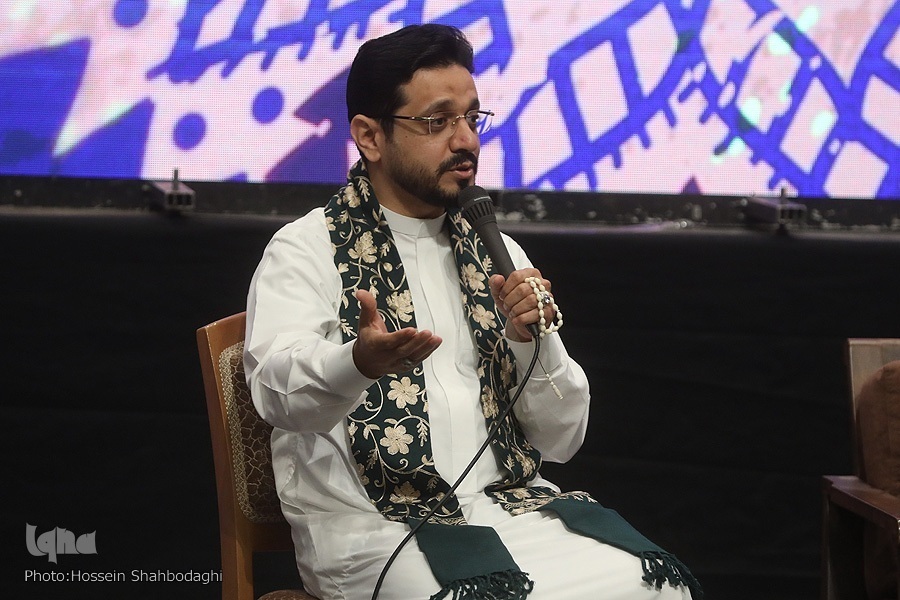‘Discovery of Hidden Treasures’: Iraqi Qari Lauds Iran’s Recent Quran Contest

The Iraqi reciter said the event went far beyond a conventional contest. “What we witnessed in Zayen al-Aswat was not merely a competition—it was a discovery,” al-Hulw told IQNA.
The festival revealed “exceptional personalities and rare talents, particularly among teenagers who performed with remarkable strength and precision,” he said.
The first edition of the Zayen al-Aswat (meaning “Adorned Voices”) Quran contest took place in the holy city of Qom on October 1–2, 2025. More than 1,600 applicants from across Iran registered, with 94 advancing to the finals.
The participants, aged 14 to 24, competed in various forms of recitation under the supervision of international judges. Organized by the Al al-Bayt Institute’s Quranic Affairs Center with support from several cultural institutions, the event was held under the slogan “Quran, the Book of the Faithful.”
Al-Hulw said one of the competition’s most important features was its educational structure. “This is not just about competing; it is a living workshop,” he explained.
Read More:
He emphasized that many young participants possess natural talent and powerful voices, but the presence of experienced teachers helps refine their technical and stylistic skills, preparing them for international stages.
The Iraqi qari also highlighted Iran’s growing global reputation in Quranic recitation. He said the country’s young reciters have achieved outstanding results in recent years, often ranking among the top three in prestigious international competitions.
He pointed to Iran’s success in Iraq’s Jai’zah al-Ameed contest, traditionally dominated by Arab-speaking countries, as “proof that Iranian youth are now serious and respected contenders alongside Egyptian and Iraqi reciters.”
For the future of Zayen al-Aswat, al-Hulw proposed two key priorities: ensuring educational justice and promoting stylistic diversity. “There are gifted reciters from remote areas who lack access to qualified teachers. They are your hidden treasures,” he said, urging institutions to identify and support them.
Read More:
He also encouraged young Iranian reciters to explore a variety of classical schools of recitation. “We have great masters—Abdulbasit, Mustafa Ismail, Muhammad Sidiq al-Minshawi, Abdul Fattah al-Sha’sha’i, Muhammad Rif’at, and Mahmoud Khalil al-Husari—each representing a world of technique and expression,” he said. Promoting stylistic diversity, he added, would lead to “a richer and more creative Iranian school of recitation that the world can recognize.”
He also noted that the competition enjoys the potential to be held internationally in the years to come.
4308721



